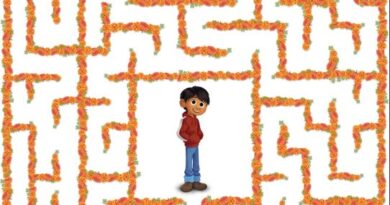
How to Become a Marriage and Family Therapist
Becoming a marriage and family therapist is a rewarding career path for those who want to help people overcome challenges and improve their relationships. Marriage and family therapists offer counseling to individuals, couples, and families to address a wide range of issues, including relationship problems, mental health conditions, and life transitions. If you are compassionate, a good listener, and interested in human behavior, a career as a marriage and family therapist may be right for you. This article will provide an overview of the steps to start your career in this enjoyable profession.
Educational Requirements
The first step to becoming a marriage and family therapist is earning a master’s degree or doctoral degree in marriage and family therapy or a related mental health field. Accredited programs provide coursework in family systems theory, couples therapy techniques, family psychology, ethics, and counseling. In addition to classroom instruction, marriage and family therapy graduate programs require supervised clinical experience through practicums or internships. These provide the opportunity to acquire hands-on skills in assessing clients, developing treatment plans, and providing therapy under the guidance of licensed professionals.
Licensure
After graduating, prospective marriage and family therapists must pursue licensure in their state to practice independently. Each state has specific licensing requirements, but most involve passing a national exam, completing 2-3 years of clinical work, and submitting an application with fees. Once licensed, marriage and family therapists must fulfill continuing education requirements to maintain licensure.
Become a Member of a Professional Organization
Becoming involved in professional organizations is a great way for marriage and family therapists to stay up-to-date on the field, network, and advance their careers. Top organizations include the American Association for Marriage and Family Therapy (AAMFT) and the California Association of Marriage and Family Therapists (CAMFT). These provide members with journals, conferences, job boards, and opportunities for leadership. They also advocate politically for issues relevant to marriage and family therapists. Membership provides many benefits for those pursuing this career path.
Career Opportunities
There are diverse marriage and family therapist jobs spanning many settings. Marriage and family therapists often work in private or group counseling practices. They may also work in community health centers, hospitals, schools, correctional facilities, military settings, and other public and private organizations. Positions are available in both clinical and administrative capacities. Clinical marriage and family therapists provide direct counseling services to clients. They conduct assessments, develop treatment plans, and provide individual, couple, family, and group therapy. Administrative positions often involve supervising other clinicians, developing programs and interventions, overseeing clinical operations, and managing support staff.
With experience, marriage and family therapists can advance to supervisory, director, or executive roles within an organization. They may also go into teaching, research, consulting, or program development related to marriage and family therapy. Overall, the field is projected to grow much faster than average over the coming decade, indicating there will be plentiful marriage and family therapist job opportunities.
Pursuing a career as a marriage and family therapist allows you to make a difference in people’s lives by helping them achieve more fulfilling relationships and mental well-being. It is a professionally and personally rewarding field. If you are ready to embark on this meaningful career path, take the steps to earn your graduate degree, obtain licensure, and start improving clients’ lives as a marriage and family therapist.










This is some great information. Thanks for sharing.